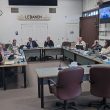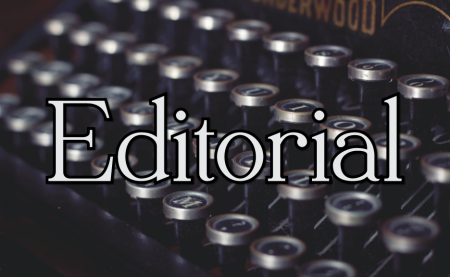It’s kind of hard to believe, but one year ago we published the first edition of Lebanon Local.
Time does fly, and during that period I’ve thought a lot about local journalism (which is probably a good thing, since that’s what we do here) and where we’re going with this newspaper.
We’ve had a lot of encouragement from the community, including an increasing number of subscribers who’ve let us know they value what they’re seeing.
We very much appreciate all the readers and advertisers who have supported us through a year.
As a monthly newspaper, we can only do so much, but we greatly appreciate the feedback and encouragement we’ve received. The crossword puzzle on page 15 is the result of readers’ requests.
The first week of October was National Newspaper Week, which was what it sounds like: a celebration of – and reflection on – the role newspapers should play in their communities.
I’ve talked about that before on this page, but with all the talk about “fake news” and decreasing lack of trust in nearly all information providers – mainstream or social media, this anniversary provides a good opportunity to give ourselves a gut-check, so to speak.
Veteran journalist Gene Policinski, who is chief operating officer of the Newseum Institute and its First Amendment Center, wrote a think piece for National Newspaper Week in which he discussed bias in the news media, recalling that this is not the first time in history that this has been an issue.
“The change of bias has been leveled at journalists since the nation began – and was, in fact, welcomed by many in the first “journals of opinion” and later by media moguls making no pretence at publishing anything but “news” filtered through their own views.
“But over time, and by dint of the hard work and credible reporting by tens of thousands of journalists – in newspapers, and later in radio, television and now online – readers, listeners, views and users gave their loyalty to news operations that brought them what they needed.”
That’s an accurate summary of 300 years of journalism history. But the issue isn’t really what everybody else is doing that’s right or wrong. It’s what we’re doing right here in Lebanon.
Recently, I visited with a friend who told me he’s pretty much sworn off newspapers in the urban area in which he lives after a local major publication, in his view, mercilessly pilloried Ronald Reagan in its coverage of the former president’s death. That was in 2004.
We discussed at length the decline of local newspapering in the metropolitan area in which he lived. He lives in a city half again the size of Albany. The only “local” newspaper covers 12 cities, most larger than his – and it’s about the size of our local daily.
The only local news, he said, came from City Hall in a newsletter once a month. He said it was “terrible.”
There’s room – and a need – for local newspapers throughout America. One problem today is that it’s very hard to know when to trust the credibility of information you’re getting and when not to. I’ve been in this business for nearly 40 years and it’s hard for me to know if what I’m seeing from the New York Times or Fox News is balanced – an honest attempt to actually report truth in a balanced way – or not.
As I said earlier, all we can really do to serve you is focus on Number One: Doing our best to cover Lebanon news as thoroughly and fairly as possible with the staff and space we have available.
Bias is a reality for all of us, not just reporters. What I saw and thought about the football game or the City Council meeting I just observed may not be what the person sitting in front of me came away with.
That’s why we focus heavily on being as objective as possible – reporting the facts and the various sides of an issue as fairly as we can.
All of that support is key as we embark on Year Two.




